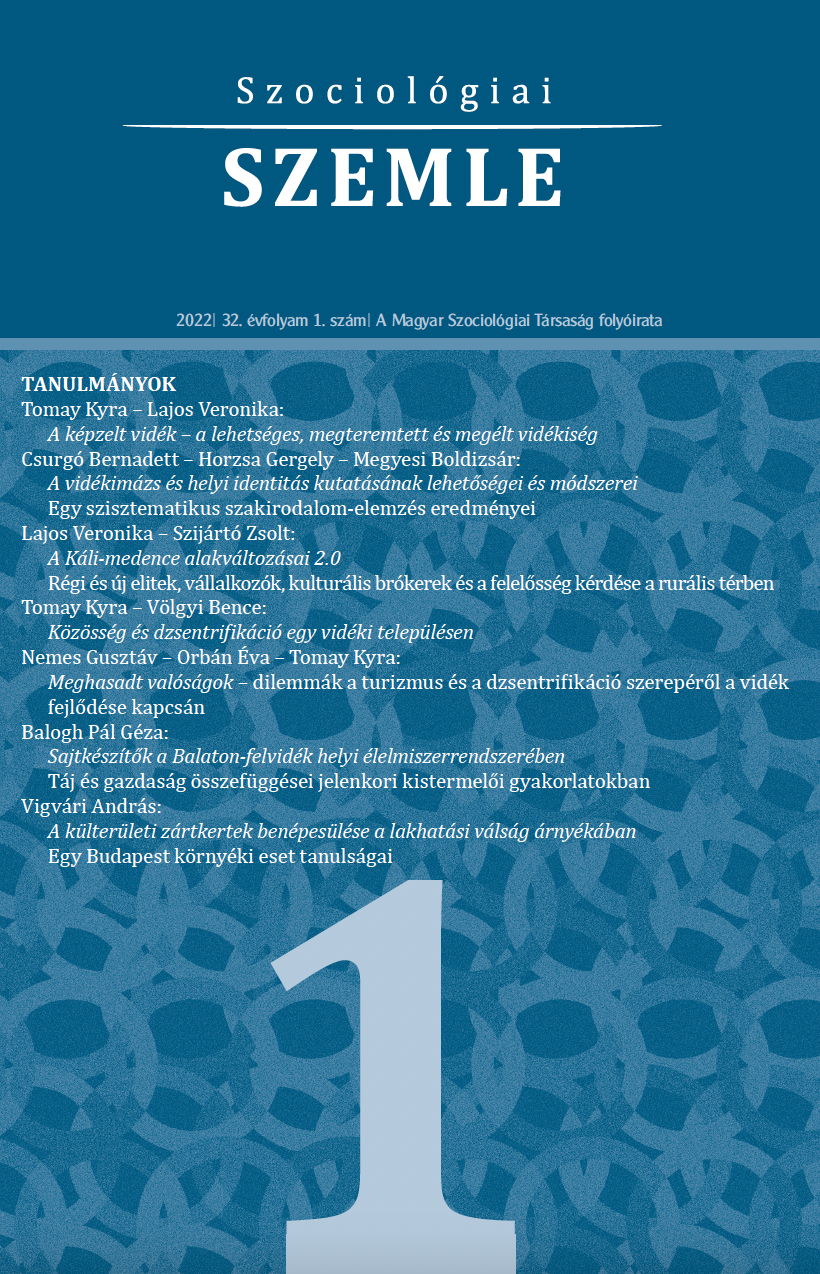Urbanisation of peri-urban allotment gardens in the shadow of housing crisis
Case study from the Budapest metropolitan area
Abstract
Moving out to peri-urban allotments has been one of the most significant and widespread forms of residential mobility in Hungary in recent years, with formerly agricultural rural areas becoming semi-informal residential areas. The former peri-urban allotments served as an important base for intensive agricultural horticulture, and during the socialist period they also served a recreational and leisure function in the life of households, in addition to the production related to the second economy. The economic and social changes that followed the change of regime have also led to a major change in the function of Hungarian allotment gardens, which has led to an increase in their role in housing. The small-scale productive and recreational role of allotments, which was typical of the socialist era, declined sharply: some areas rapidly declined, while the housing role of the more well-situated areas gradually increased from the 1990s onwards. Since the 2000s, allotments, which offer cheap housing in urban areas, have become the housing destination of an increasing number of households. In my paper, I intend to illustrate the structural processes that have contributed to the urbanisation of former agricultural land through the case of an allotment on the outskirts of the Budapest metropolitan area.





